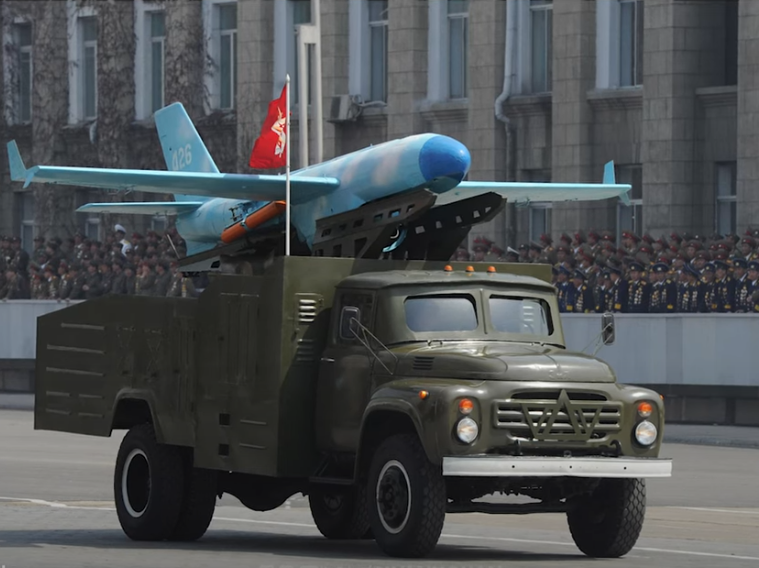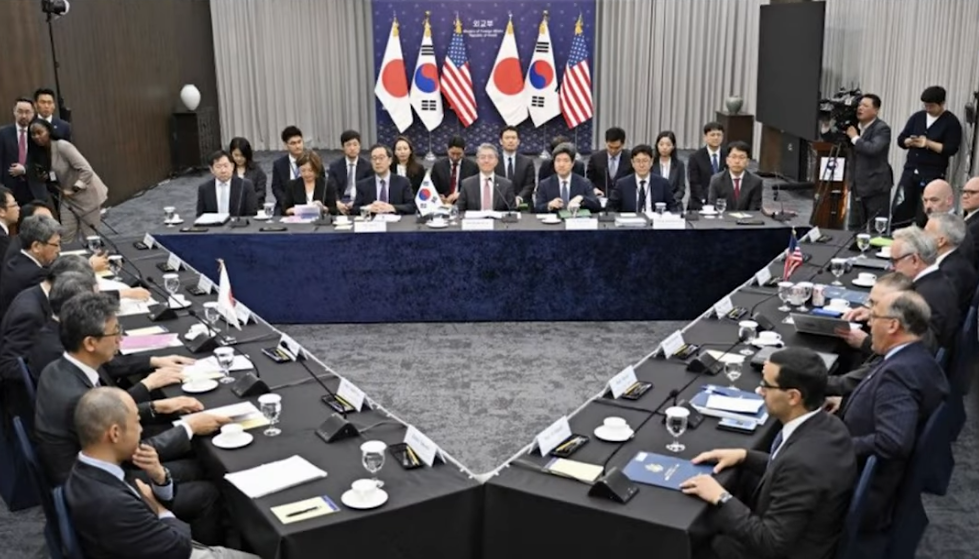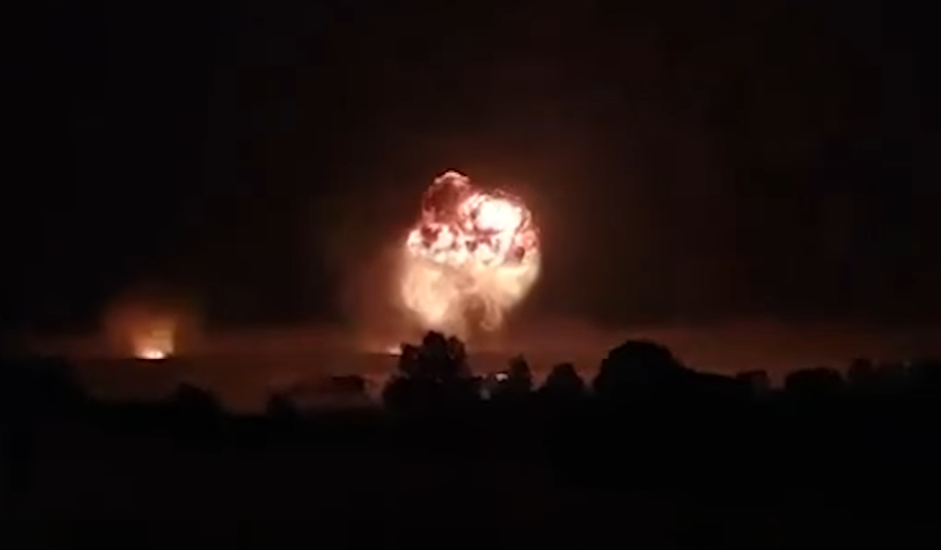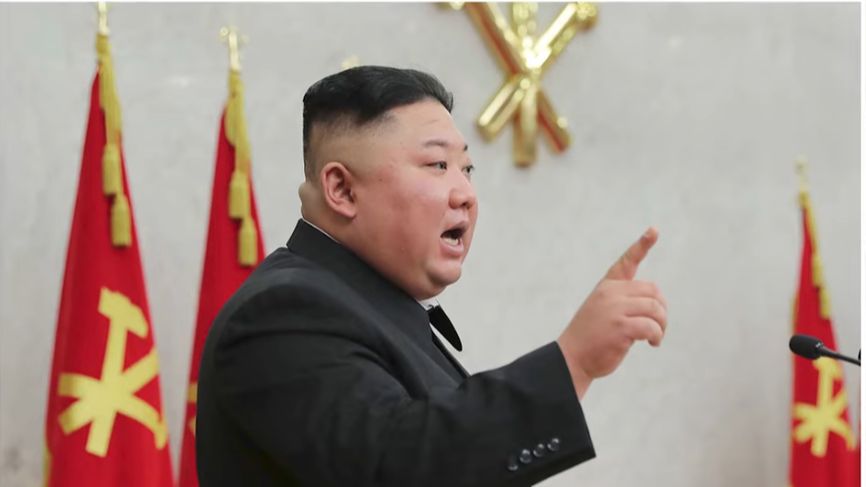Tensions between North Korea and South Korea
Recently erupted when North Korea accused Seoul of spreading leaflets criticizing leader Kim Jong Un using unmanned aerial vehicles (UAVs). According to reports from North Korea, UAVs have appeared at least three times since the beginning of October in the area near the capital Pyongyang. The Korean Central News Agency (KCNA) stated that these leaflets contained distorted and unreasonable rumors and were considered an act of violating sacred sovereignty, which could lead to serious military conflict between the two countries. Meanwhile, the North Korean Foreign Ministry emphasized that this action threatens security and is a serious provocation. On the other hand, South Korea has not confirmed the dissemination of these leaflets, and no activist group in South Korea has taken responsibility.
However, they also did not vigorously deny the accusations from Pyongyang; the South Korean defense minister initially denied the neighbor's accusations but later the Joint Chiefs of Staff stated in a declaration that they could not confirm whether the North Korean allegations were true or not. Previously, some activist groups in South Korea, including defectors from North Korea, often used balloons to send leaflets, USBs containing Korean films, K-pop music, and messages criticizing the North Korean leader. This triggered a response from North Korea.
In recent months, the country has released thousands of balloons carrying bags of trash and possibly waste across the heavily armed border between the two countries and South Korea. In South Korean airspace, they have also accused Pyongyang of controlling drones that violated their airspace several times before. For example, in December 2022, South Korea deployed fighter jets after detecting five North Korean drones flying over the Seoul area. The South Korean military fired warning shots from helicopters but was unsuccessful in shooting down any of the aircraft.

The incident has prompted South Korean President Yoon Suk-yeol to accelerate the development of drones capable of surveilling military facilities of the northern neighbor. On the opposite side, Chairman Kim Jong Un has also expressed great interest in drone development, promising in 2021 to oversee the production of more sophisticated machinery with a longer operational range. The allegations related to drones have led to escalating tensions between the two Koreas over the past week. Clearly, this is not uncommon and has happened in the past, but the current tensions reflect a serious deterioration in inter-Korean relations in recent months.
North Korea stated that its frontline military units are ready to attack South Korean targets if any more drones are detected. In a statement on state media on Sunday, the North Korean Ministry of Defense said, "The military has ordered units near the border - known as the demilitarized zone - to be fully prepared to fire." This order was issued in the context of Kim Yo-jong, Kim Jong Un's sister, calling the South Korean Defense Ministry's warning that if North Korea attacks its people, it would be a suicidal act. At the same time, she also stated that if any more drones are detected, South Korea would face a catastrophic disaster.
Earlier last week, South Korea reported signs that North Korea was preparing to destroy parts of the now-defunct inter-Korean road amid escalating tensions. However, the question is why North Korea is so angry this time and whether they have any other purpose behind this. First, it is important to know that the legitimacy of the current regime in North Korea largely depends on maintaining a positive image surrounding the Kim family, which has led the country since its establishment in 1948. Therefore, this regime is extremely sensitive to external efforts to undermine the people's worship of Kim Jong Un and previously his father and grandfather.
The fact that the neighboring South Korea is using drone technology, to be more precise, since the beginning of this year, they have been the main enemy of North Korea, has helped the regime in Pyongyang to intensify anti-South Korea and U.S. rhetoric, a tactic often used to enhance the leaders' standing in the eyes of the North Korean people. North Korea's recent tough rhetoric and actions may also be part of a larger strategy to influence the international political situation, especially in the context of the upcoming U.S. presidential election.
After the most recent incident, a military spokesperson from North Korea warned that all of South Korea could turn to ashes if there were any retaliatory attacks from the South. This is also a move that observers believe North Korea may be trying to remind the two candidates in the upcoming U.S. presidential election about the potential to cause fear and instability in the region. According to many observers, since the denuclearization talks with former President Donald Trump broke down in 2019, North Korea has intensified nuclear missile testing and used tough rhetoric to maintain its presence on the international stage. This could be a test that North Korea is using against the U.S. at this time, especially with the Democratic Party.
ABC Ukraine cites political scientist Vladimir Fesenko's assessment that North Korea may be trying to provoke a small conflict at the inter-Korean border to highlight the weaknesses in the U.S. Democratic Party's policies. Tensions continue to escalate on the Korean Peninsula due to recent moves from the U.S., particularly this can be seen as a move to add fuel to the fire as the situation is very tense on the Korean Peninsula. Accordingly, the U.S. and its allies announced on October 16 the establishment of a new multinational group to monitor the enforcement of sanctions against North Korea.
This move came after Russia vetoed the extension of a group of experts monitoring the enforcement of United Nations sanctions against North Korea related to Pyongyang's nuclear and ballistic missile programs in March. Subsequently, North Korean Foreign Minister Choe Son-hui accused the new multilateral monitoring group led by the U.S. of being completely illegal and unorthodox. KCNA reported on October 20 that she criticized the group, which is expected to involve eight countries, as a wrongful act of Washington that disregards international order and is the most blatant violation of North Korea's sovereignty.

The forces involved in the smear campaign against North Korea will have to pay a heavy price, and new sanctions may be imposed on North Korea in the near future. However, it may not only be about Pyongyang's nuclear and ballistic missile programs but also to prevent the country from increasingly supporting forces opposing the U.S. and the West. Both Washington and Seoul have warned about North Korea's increasingly close military relationship with Russia. Recently, Pyongyang has been compelled to send weapons and troops to support Moscow in its special military operation in Ukraine.
Both Russia and North Korea have repeatedly denied the above information. However, in a statement, the South Korean National Intelligence Service reported that Russian naval vessels had transferred 1,500 North Korean special operations forces to the port city of Vladimir Vostok from October 8 to 13 and are currently in training. These North Korean soldiers are expected to be deployed to the front lines immediately after completing their adaptation training. The agency also stated that more North Korean soldiers would soon be sent to Russia. NIS reported that North Korean soldiers were provided with Russian uniforms and weapons produced in Russia and were given fake identification documents as residents of Yakutia and Butia, two regions in Siberia.
It seems they have disguised themselves as Russian soldiers to conceal their deployment to the battlefield. Additionally, a Ukrainian source reported that Pyongyang is estimated to have provided about half of the large-caliber ammunition used on the battlefield in 2024, with over 2 million rounds. They also supplied K23 missiles, which were used in dozens of attacks across Ukraine last winter. The North Korean regime's creation of tensions on the Korean Peninsula may help Russia somewhat relieve pressure from the U.S. and its allies, or it could also be a way for the country to begin demonstrating to the world that the North Korean military can engage in combat on other fronts in the future.

The closer the relationship between Russia and North Korea, the more concerned the U.S. and its allies become. But more importantly, if China, a country believed to have supported North Korea significantly, also begins to act, it will be an even more complicated issue. However, currently, Chinese President Xi Jinping has stated that he is still willing to lead friendship and cooperation with North Korea towards sustainable and stable development and contribute to the protection of regional and global peace.
Tensions on the Korean Peninsula may stem from various strategic factors and political objectives, but regardless, a real war would only bring disaster to the entire region and the world. Restraint, maintaining dialogue, and diplomacy are always the optimal paths to ensure peace, avoiding unforeseen consequences for both Koreas and the countries involved.
